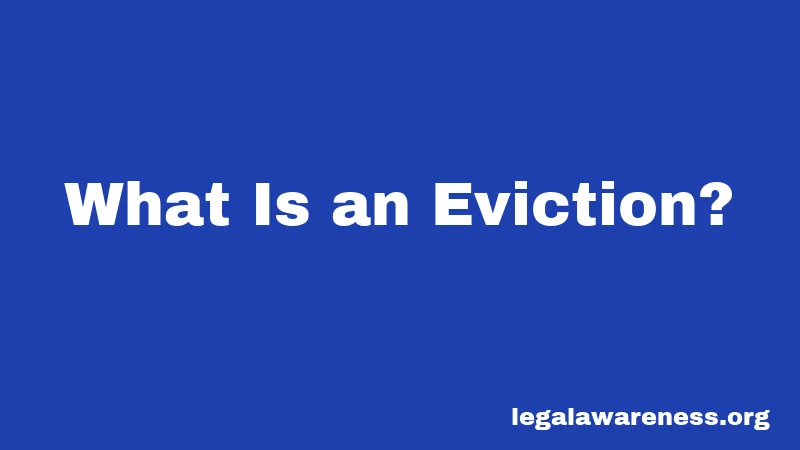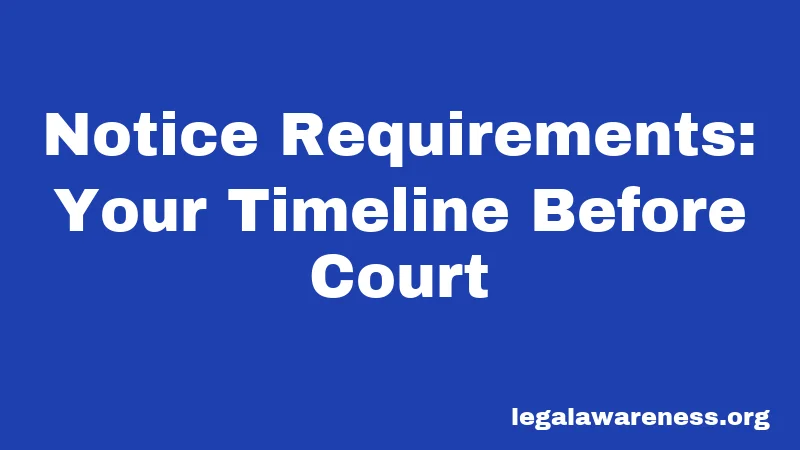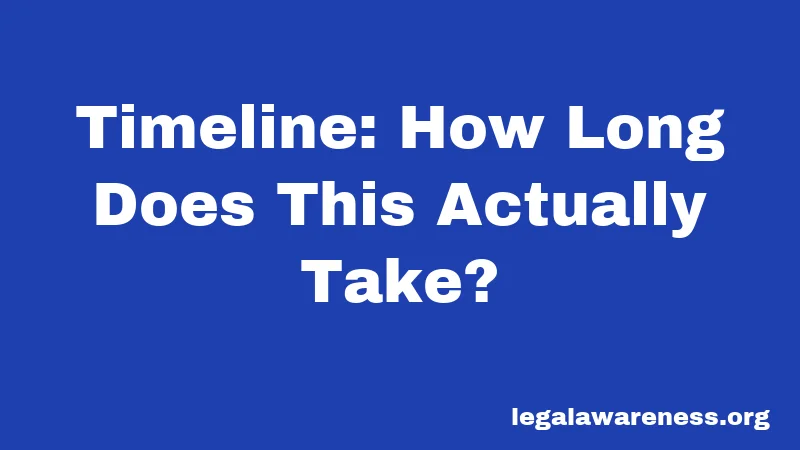Missouri Eviction Laws (2026): What Landlords and Tenants Must Know
Here’s something most people don’t realize: getting evicted is a serious legal process. It’s not just a landlord saying “get out.” In Missouri, there are strict rules both landlords and tenants need to follow. Breaking these rules can lead to lawsuits, fines, and real consequences.
Whether you’re a landlord protecting your property or a tenant fighting to stay in your home, understanding Missouri’s eviction laws matters. A lot. These rules exist to make sure evictions are fair and that everyone has a chance to be heard. Let’s break down exactly what you need to know.
What Is an Eviction?

Think of an eviction as a forced removal from a rental property. But here’s the thing: it’s not something a landlord can just do on their own. Only a court can order an eviction. Only the sheriff can actually remove you.
A landlord can’t change your locks, remove your stuff, or shut off your utilities to force you out. Seriously. That’s illegal in Missouri. If a landlord tries it, you can sue them for damages. This is what Missouri calls “self-help” eviction, and it’s a big no-no.
So basically, eviction is a legal process. It takes time. It follows specific rules. And it requires a judge’s order to be official.
Valid Reasons for Eviction in Missouri
Not every situation allows a landlord to evict you. Missouri law requires landlords to have a valid reason. Here are the main ones.
Nonpayment of Rent
This is the most common reason for eviction. If you don’t pay rent when it’s due, your landlord can start the eviction process. And here’s the thing: rent is considered late in Missouri the day after it’s due. Not a week later. Not a few days later. The day after.
There’s no legally required grace period. Your lease might include one, but the law doesn’t require it. Landlords can technically file for eviction right away if rent is even one day late. However, many landlords give tenants a few days as a courtesy before going to court.
Lease Violations
Your lease is basically a contract. When you break the rules in it, that’s a lease violation. Examples include having an unauthorized pet, causing excessive damage, having unauthorized roommates, or violating any other term in your lease.
For these violations, the landlord must give you a 10-day notice to quit (or fix the problem). You either need to cure the violation or move out. If you don’t, your landlord can file for eviction.
Illegal Activity
Drug dealing, assault, manufacturing meth—these are serious. If you or your guest engages in illegal activity on the property, your landlord can evict you. For most illegal activities, you get a 10-day notice.
But here’s where it gets strict. For some crimes—violence, assault, drug trafficking—your landlord doesn’t even have to give you notice. They can file for immediate eviction. No waiting period. That’s how serious Missouri takes criminal activity on rental property.
Holdover Tenancy (End of Lease)
Your lease ended. You didn’t leave. You’re now what’s called a “holdover tenant.” Your landlord can evict you. They’ll give you a 30-day notice to move. If you don’t leave by then, they can file an eviction lawsuit.
Notice Requirements: Your Timeline Before Court

Here’s where you need to pay attention. Different situations require different notice periods. Your landlord has to follow these exactly, or the eviction might get dismissed.
Pay or Quit Notice (Nonpayment of Rent)
Your rent is late. Your landlord serves you a “Pay or Quit” notice. This basically says: Pay what you owe, or move out. You typically get 3-5 days, though the law doesn’t require a specific period.
After that deadline passes without payment, your landlord can file in court. But wait—it gets important here. Once they file, the court process takes additional time. We’re talking weeks, not days.
10-Day Notice to Quit (Lease Violations)
You violated your lease. Your landlord serves a 10-Day Notice to Quit. You have 10 days to fix the problem or leave. The landlord doesn’t have to let you fix it, but many do out of fairness.
If you don’t cure the violation or move out within 10 days, your landlord can file for eviction.
10-Day Notice for Illegal Activity
Your guest did something illegal. Or you did. Either way, your landlord can serve a 10-day notice for you to vacate. You don’t get a chance to “fix” an illegal activity. You just have to move.
If a guest committed the crime (not you), you get 5 days instead of 10. This gives you time to remove that person and stay in the property yourself.
30-Day Notice (Month-to-Month or End of Lease)
For month-to-month rentals with no cause for eviction, landlords must give 30 days written notice. The notice must specify the date you need to move. This is pretty straightforward.
For fixed-term leases ending, landlords don’t even have to give notice unless the lease requires it. When the lease ends, it ends.
The Court Process: What Actually Happens
Here’s what you need to know. After the notice period expires, your landlord files a lawsuit in circuit court. This is when things get official.
Step 1: The Lawsuit Is Filed
Your landlord files an “unlawful detainer” action (also called a “forcible detainer”). This is the legal term for an eviction lawsuit. They pay the court filing fee, which typically costs around $36 in Missouri counties.
Step 2: You Get Served
The court won’t just notify you. The sheriff or an authorized process server must deliver official papers to you. They need to do this at least 4 days before your court hearing. You’re not dealing with a casual notice. This is formal legal service.
Step 3: The Court Hearing
You and your landlord go to court. The judge listens to both sides. If you don’t show up, the judge might issue a “default judgment” against you. That means the landlord wins automatically because you weren’t there.
If you show up, you can defend yourself. Maybe the landlord didn’t follow proper notice requirements. Maybe there’s discrimination involved. Maybe the property isn’t habitable. These are valid defenses.
Step 4: The Judgment
The judge decides. If the landlord wins, the judge issues a judgment for possession. The tenant has to leave. But here’s the thing: even after losing, you get 24 hours to vacate. Sometimes more, depending on the judge.
Step 5: Sheriff Enforcement
Still not leaving? Only the sheriff can physically remove you. Your landlord can’t do it. Not with force. Not with threats. Only law enforcement.
The sheriff will show up. You’ll need to be gone. The landlord can then legally take possession of the property.
Timeline: How Long Does This Actually Take?

Okay, real talk. People think evictions happen fast. They do—compared to other lawsuits. But it’s not overnight.
On average, the entire Missouri eviction process takes 1-3 months from initial notice to actual removal. That’s assuming the tenant doesn’t contest it and the court schedule cooperates.
Breaking it down: the notice period is 5-30 days depending on the situation. The court process then takes another 2-4 weeks minimum. Add in delays, and you’re looking at close to 3 months.
The absolute fastest would be an expedited eviction for drug activity or serious emergency. Even then, you’re looking at weeks, not days.
Expedited Evictions: The Fast Track
Missouri has rules for situations so serious that normal eviction is too slow. These are called “expedited evictions.” The court can order immediate eviction or removal. Here’s when this applies.
Drug-Related Criminal Activity
If drug crimes happen on the property, the landlord can ask for expedited eviction. This is Missouri taking a hard line on drugs.
Emergency Situations
If someone’s life is in danger or property damage exceeds twelve months’ rent, expedited eviction is possible. An example: the tenant is actively threatening violence toward other residents.
Persons Barred from Property
If a tenant allowed someone to live there who was previously banned, that’s serious. The landlord can ask for expedited removal.
Here’s what makes these “expedited”: the court can order removal within days instead of weeks. But even this requires going through court. There’s no skipping that step.
Tenant Rights and Defenses
Okay, landlords don’t just automatically win. Tenants have rights. Real rights. Here are some valid defenses against eviction.
Lack of Proper Notice
Did your landlord follow the right notice procedures? If not, you might win. The notice must be in writing. It must give the right amount of time. It must be served correctly.
Landlord Retaliation
Landlords can’t evict you for exercising your legal rights. Examples: reporting code violations, filing a complaint about habitability, or asking for necessary repairs. If your landlord is retaliating, you have a defense.
Uninhabitable Living Conditions
Your rental must be habitable. Basic utilities, working plumbing, safe structure—these are required. If your landlord isn’t maintaining the property, you might have a defense.
Discrimination
Eviction based on race, religion, disability, family status, or other protected reasons is illegal. This is serious, and tenants can sue.
Payment Was Made
If you actually paid the rent and the landlord says you didn’t, that’s a defense. Bring your proof.
What Happens to Your Belongings?
Here’s a practical question many people have. After you’re forced out, what happens to your stuff?
Missouri law requires landlords to safely store your possessions for 30 days. You can contact your landlord during that time and retrieve your property. If you don’t claim it within 30 days, the landlord can dispose of it.
If the landlord sells your belongings, the money goes to you after deducting storage costs. But practically speaking, it’s better to collect your stuff quickly.
Before disposing of anything, the landlord must notify you. They post notice at the property and mail notice to your last known address. You get 10 days to respond.
Illegal Eviction Tactics: What Landlords Can’t Do
This is super important. Self-help evictions are illegal in Missouri. Period. Here’s what landlords absolutely cannot do.
Landlords cannot change the locks while you’re still a tenant. They cannot remove your belongings. They cannot shut off utilities. They cannot remove the doors or windows. They cannot physically threaten you or use force.
If your landlord tries any of this, you can sue. The court may order the landlord to pay your attorney fees. You might get to stay in the property. You can definitely get damages.
This is one area where Missouri strongly protects tenants. The courts don’t play around with self-help evictions.
Recent Law Changes (2024-2026)
Stay current. Laws change. Here’s what’s new.
In August 2024, Missouri passed Senate Bill 895. This law basically says local governments cannot issue eviction moratoriums without state approval. This prevents cities from blocking evictions during emergencies.
The law also requires that when rental properties change hands and there are outstanding eviction judgments, those must be filed with the circuit court within 30 days.
These changes matter if you’re in a situation where local governments might try to step in. They can’t, not without state say-so.
Special Situations: Squatters and Unauthorized Occupants
What if someone isn’t even a tenant? What if they’re just living on your property without permission? That’s different.
Missouri has a fast-track process for removing unlawful occupants (also called squatters). It’s similar to eviction but slightly different legally. The landlord files a petition, and the process is streamlined.
However, someone can claim “adverse possession” if they occupy property openly for at least 10 years while paying property taxes. That’s a long-term claim, but it’s possible.
How to Protect Yourself: Practical Steps
For Tenants:
Document everything. Keep copies of rent payments. Photograph the property condition when you move in. Respond to any notice immediately. If you can’t pay rent, communicate with your landlord. Many will work with you. If you face eviction, go to court. Don’t ignore it.
For Landlords:
Follow the process exactly. Wrong notices or wrong timing can get your case dismissed. Keep detailed records. Serve notices properly. Consider legal help. The cost of an attorney is cheaper than losing a case on a technicality.
Frequently Asked Questions
Can a landlord evict me without going to court?
No. Absolutely not. Only a court can order eviction. Only the sheriff can physically remove you. Any other attempt is illegal self-help eviction, and you can sue.
How much notice does Missouri law require?
It depends on the situation. Nonpayment: 3-5 days (but no law requires it). Lease violations: 10 days. Illegal activity: 10 days. Month-to-month without cause: 30 days.
Can I stop an eviction by paying rent?
Maybe. If your landlord hasn’t filed in court yet, paying the owed rent might stop it. Once the lawsuit is filed, it’s more complicated. Talk to a lawyer immediately.
What if my landlord didn’t follow proper procedure?
That’s a defense. Tell the judge. Get the case dismissed. This is why following exact procedures matters. One mistake can cost the landlord everything.
How long can I stay after losing in court?
You get 24 hours to vacate. The judge might give longer if there are circumstances, but 24 hours is standard. After that, the sheriff can physically remove you.
Can my landlord keep my security deposit as back rent?
Complicated. Security deposits must be returned within 30 days with an itemized list of deductions. Using it for back rent without following proper procedures is usually illegal. Check with a lawyer.
What if I’m disabled or in a protected class?
Discrimination in eviction is illegal. Disability protections, familial status protections, race protections—these all apply. If you believe you’re being discriminated against, contact legal aid or a lawyer immediately.
Final Thoughts
Missouri’s eviction laws protect both landlords and tenants. They require proper notice. They require court involvement. They require following specific rules. These protections exist for good reasons.
If you’re a tenant, know your rights. Respond to notices. Show up in court. Get legal help if you need it. If you’re a landlord, follow procedure perfectly. One mistake can derail everything.
When in doubt, consult a Missouri real estate attorney. They know the local courts, local judges, and all the ins and outs. It’s worth the cost. Stay informed. Stay protected. And remember: only a court can order you out.
References
- Missouri Revised Statutes Chapter 441 – Landlord and Tenant Law
- Missouri Revised Statutes Section 441.770 – Court-Ordered Eviction
- Missouri Attorney General’s Office – Landlord-Tenant Law Handbook
- Missouri Courts – Civil Forms and Information
- Legal Aid of Eastern Missouri – Tenant Rights Resources
- Nolo – Missouri Eviction Process Guide
